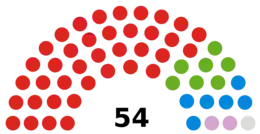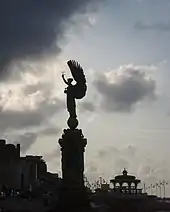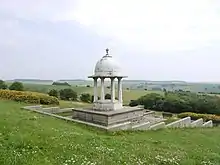Portal:East Sussex
Welcome to the Portal covering the English administrative county of East Sussex
East Sussex is a ceremonial county in South East England. It is bordered by Kent to the north-east, West Sussex to the west, Surrey to the north-west, and the English Channel to the south. The largest settlement is the city of Brighton and Hove, and the county town is Lewes.
The county has an area of 1,792 km2 (692 sq mi) and a population of 844,985. The latter is largely concentrated along the coast, where the largest settlements are located: Brighton and Hove (277,103), Eastbourne (101,700), and Hastings (92,855). The Brighton and Hove built-up area extends into West Sussex and has a total population of 474,485. The centre and north of the county is largely rural, and the largest settlement is Crowborough (20,607). East Sussex contains six local government districts; five are part of a two-tier non-metropolitan county also called East Sussex, and the district of Brighton and Hove is part of a unitary authority area. East Sussex and West Sussex historically formed a single county.
East Sussex is part of the historic county of Sussex, which has its roots in the ancient kingdom of the South Saxons, who established themselves there in the 5th century AD, after the departure of the Romans. Archaeological remains are plentiful, especially in the upland areas. The area's position on the coast has also meant that there were many invaders, including the Romans and later the Normans. Earlier industries have included fishing, iron-making, and the wool trade, all of which have declined, or been lost completely. (Full article...)
Selected article

The English coastal city of Brighton and Hove has a long and varied history of libraries going back over 250 years. Subscription libraries were among the earliest buildings in the resort of Brighton, which developed in the late 18th century; by the 1780s these facilities, which were more like social clubs than conventional book-borrowing venues, were at the heart of the town's social scene. The Brighton Literary Society, its successor the Brighton Royal Literary and Scientific Institution and its rival the Sussex Scientific Institution between them established a "very fine collection" of publications by the mid-19th century, and these books were donated to the town when a public library was founded in 1871. Neighbouring Hove, originally a separate village, established its own public library in 1890.
Public libraries in the city are run by the Royal Pavilion, Museums and Libraries department of Brighton and Hove City Council. Branch libraries operate in the outlying villages and suburbs of Coldean, Hangleton, Hollingbury, Mile Oak, Moulsecoomb, Patcham, Portslade, Rottingdean, Saltdean, Westdene, Whitehawk and Woodingdean. The Brighton and Hove Toy Library is at the Whitehawk Library, rebuilt and reopened in 2011. The city council also operated a mobile library until 2013. Library membership is not limited to residents of the city, and gives borrowing rights at libraries throughout the city. Free internet access was introduced in 2001.
Nationally, libraries have experienced declining usage and funding cuts in recent decades, but Brighton and Hove's libraries have seen significant investment in the 21st century. Jubilee Library in central Brighton was opened in March 2005 to replace outdated split-site facilities nearby, which included a separate music library. It is England's sixth busiest: about 1 million people visited in 2009. New branch libraries have been built in the Coldean, Mile Oak, Whitehawk and Woodingdean suburbs, either as standalone buildings or as part of other community facilities. The library at Mile Oak is due to close in July 2023. (Full article...)
Selected images
Selected biography
Terence Alan "Spike" Milligan KBE (16 April 1918 – 27 February 2002) was an Irish comedian, writer, musician, poet, playwright and actor. The son of an English mother and Irish father, he was born in British Colonial India, where he spent his childhood before relocating in 1931 to England, where he lived and worked for the majority of his life. Disliking his first name, he began to call himself "Spike" after hearing the band Spike Jones and his City Slickers on Radio Luxembourg.
Milligan was the co-creator, main writer, and a principal cast member of the British radio comedy programme The Goon Show, performing a range of roles including the characters Eccles and Minnie Bannister. He was the earliest-born and last surviving member of the Goons. He took his success with The Goon Show into television with Q5, a surreal sketch show credited as a major influence on the members of Monty Python's Flying Circus. He wrote and edited many books, including Puckoon (1963) and a seven-volume autobiographical account of his time serving during the Second World War, beginning with Adolf Hitler: My Part in His Downfall (1971). He also wrote comical verse, with much of his poetry written for children, including Silly Verse for Kids (1959). (Full article...)
Did you know that
General images -
List articles
- List of hills of East Sussex
- List of local nature reserves in East Sussex
- List of monastic houses in East Sussex
- List of museums in East Sussex
- List of Parliamentary constituencies in East Sussex
- List of places in East Sussex
- List of settlements in East Sussex by population
- List of Sites of Special Scientific Interest in East Sussex
- List of windmills in East Sussex
Subcategories
Settlements map
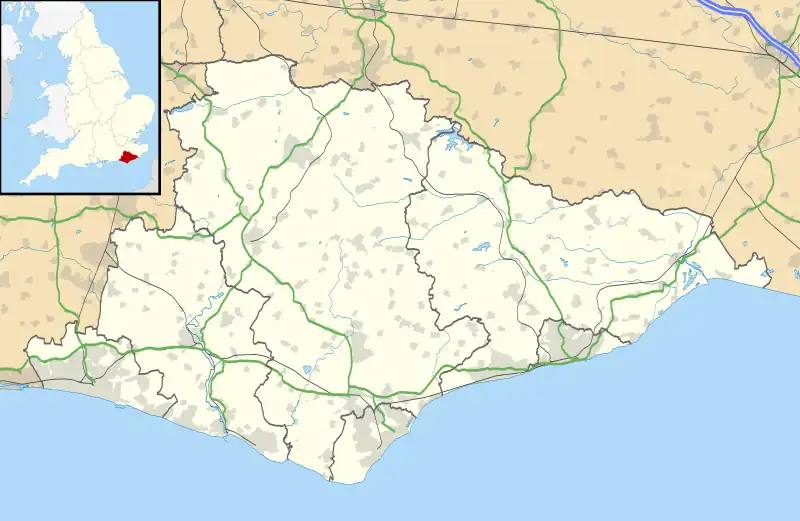
Things you can do
- Add to this portal.
- Join the Sussex WikiProject
Topics
Related portals
Associated Wikimedia
The following Wikimedia Foundation sister projects provide more on this subject:
-
 Commons
Commons
Free media repository -
 Wikibooks
Wikibooks
Free textbooks and manuals -
 Wikidata
Wikidata
Free knowledge base -
 Wikinews
Wikinews
Free-content news -
 Wikiquote
Wikiquote
Collection of quotations -
 Wikisource
Wikisource
Free-content library -
 Wikiversity
Wikiversity
Free learning tools -
 Wikivoyage
Wikivoyage
Free travel guide -
 Wiktionary
Wiktionary
Dictionary and thesaurus
-
 List of all portalsList of all portals
List of all portalsList of all portals -
 The arts portal
The arts portal -
 Biography portal
Biography portal -
 Current events portal
Current events portal -
 Geography portal
Geography portal -
 History portal
History portal -
 Mathematics portal
Mathematics portal -
 Science portal
Science portal -
 Society portal
Society portal -
 Technology portal
Technology portal -
 Random portalRandom portal
Random portalRandom portal -
 WikiProject PortalsWikiProject Portals
WikiProject PortalsWikiProject Portals
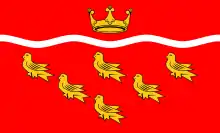
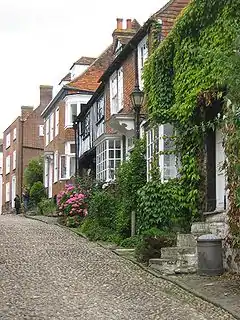
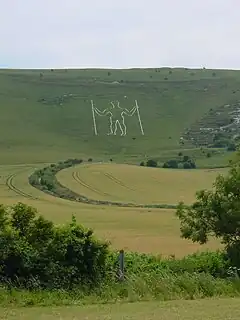

Oct2005.jpg.webp)

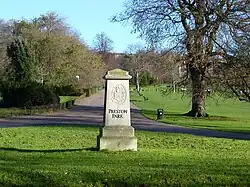
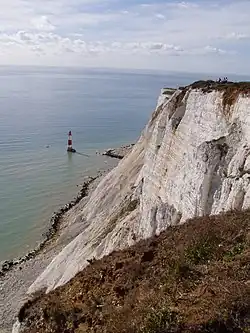


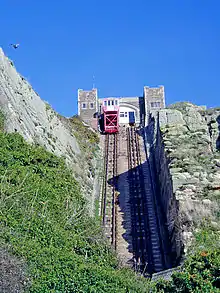
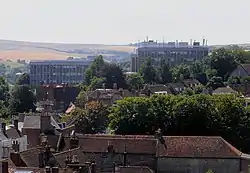



.jpg.webp)

.JPG.webp)
_(April_2013).JPG.webp)


%252C_Patcham_(from_SW).jpg.webp)


.jpg.webp)
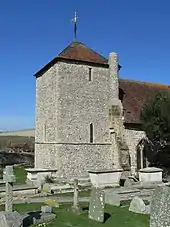
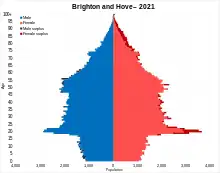
.JPG.webp)

_(1).JPG.webp)
%252C_Bevendean_(May_2020)_(6).JPG.webp)


_(July_2014)_(1).jpg.webp)



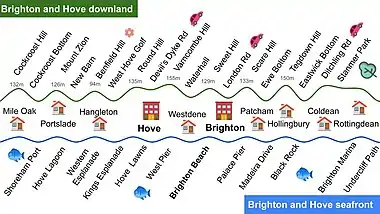

_(September_2018)_(2).jpg.webp)
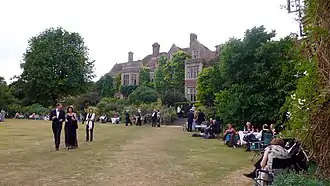






.jpg.webp)

_(2).JPG.webp)



.jpg.webp)
_(10).JPG.webp)
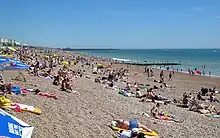

_(2).JPG.webp)
